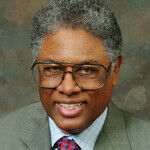The brutal murder of a former Miss Valenzuela has plunged her country and its leaders into a period of intense soul-searching. Monica Spear was killed alongside her ex-husband, Thomas Berry, a British national, as they were being robbed. Their car had broken down on a remote highway near the town of Puerto Cabello, in the northwestern part of the country. Their 5-year-old daughter, who was with them at the time, was shot in the leg but fortunately survived.
Venezuela is one of the world's most dangerous countries, with the fifth-highest murder rate, which amounted to almost 25,000 murders last year. To put that in perspective, more people were murdered in this country of 30 million than were murdered in the United States and European Union combined.
The Toyota Corolla being driven by Spear and Berry reportedly hit a sharp object that had been placed in the road, causing a flat tire. It is common practice in Venezuela for thieves to intentionally disable cars in this manner before robbing them. Despite locking themselves in the car with their daughter in a desperate attempt to protect themselves, they were shot through the window and killed. Several individuals were arrested in the days after the attack when police found them in possession of items belonging to the couple.
In addition to Spear's success in beauty pageants, which included winning her country's crown in 2004 and then placing sixth at the Miss Universe contest in 2005, she was a popular TV soap star and active in many charities. Berry had moved to Venezuela from Britain with his parents when he was a boy; he ran a travel agency. Spear split her time between Venezuela and Florida, while Berry lived permanently in Caracas.
Although President Nicolas Maduro has promised to re-establish law and order in his country, with the economy still in free fall, there seems to be little immediate promise that the situation will improve. The long rule of his predecessor, Hugo Chavez, saw crime rise significantly. Murders, for example, increased fivefold under his stewardship. Importantly, Venezuela is alone among South American countries in experiencing such a dramatic rise in crime rates in recent years. Its situation is unique, even among its closest neighbors.
Venezuelans, both at home and living abroad, have expressed outrage at the killings and the ineffectiveness of the Maduro government to combat violent crime. In response, Maduro called an emergency meeting of governors and mayors to come up with new and more aggressive policies to address this epidemic, promising a comprehensive plan by next month. This in itself is a significant change from past practices under Chavez, when the official response to escalating crime statistics was simply to dismiss them out of hand as wrong. The interior minister, Miguel Rodriguez, went so far as to give his cellphone number to police officers and encouraged them to call him directly if they come across superiors who are corrupt. He has promised to "rip the head off" any dirty cop.
Despite Chavez's rhetoric and charisma, one of the most prominent legacies of his years in power is the widespread fear of violent crime that envelopes his country. A decade and a half of poor management has left Venezuela in ruins. A shattered economy with inflation exceeding 50 percent a year would be bad enough, but murders and assaults and robberies put even further strain on the Venezuelans who have remained in the country. Many fear to leave their houses at night, uncertain what awaits them and doubtful of their government's ability to protect them. Some critics have even contended that the collapsing currency and the artificial exchange rates enforced by the government actually make foreign visitors more of a target for crime, seeing as their U.S. dollars could earn huge returns on the black market.
If a government, regardless of its partisan political or ideological affiliations, cannot protect its citizens, then it is ineffective and ultimately a failure. Under the revolutionary regime imposed by Chavez and being continued, awkwardly and with less aplomb, by his successor, Maduro, the social fabric of Venezuela has unraveled. The rule of law has been eroded by arbitrary and undemocratic policies, which undermine civil institutions and individual rights and responsibilities.
The murder of Spear has put a human face on numbing statistics and pervasive fears. The political fallout from her death risks destabilizing the already wobbly Maduro regime. Venezuelans who have demonstrated and voiced their frustrations in the past week deserve better.
Proceeds earned from Venezuela's vast oil deposits can buy a lot of things. This money can — for a limited time, at least — allow its leaders to push it further toward the breaking point. What money alone cannot do, unfortunately, is prevent a final reckoning from eventually taking place.
Timothy Spangler is a writer and commentator who divides his time between Los Angeles and London. His radio show, "The Bigger Picture with Timothy Spangler," airs every Sunday night from 10 p.m. to midnight Pacific time on KRLA AM 870. To find out more about Timothy Spangler and read features by other Creators Syndicate writers and cartoonists, visit the Creators Syndicate Web page at www.creators.com.






View Comments